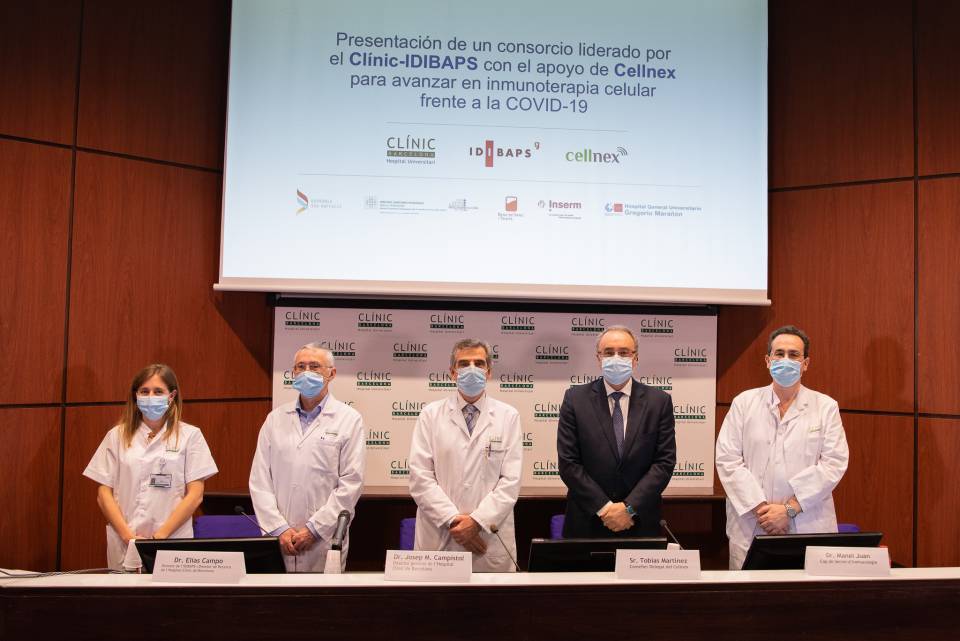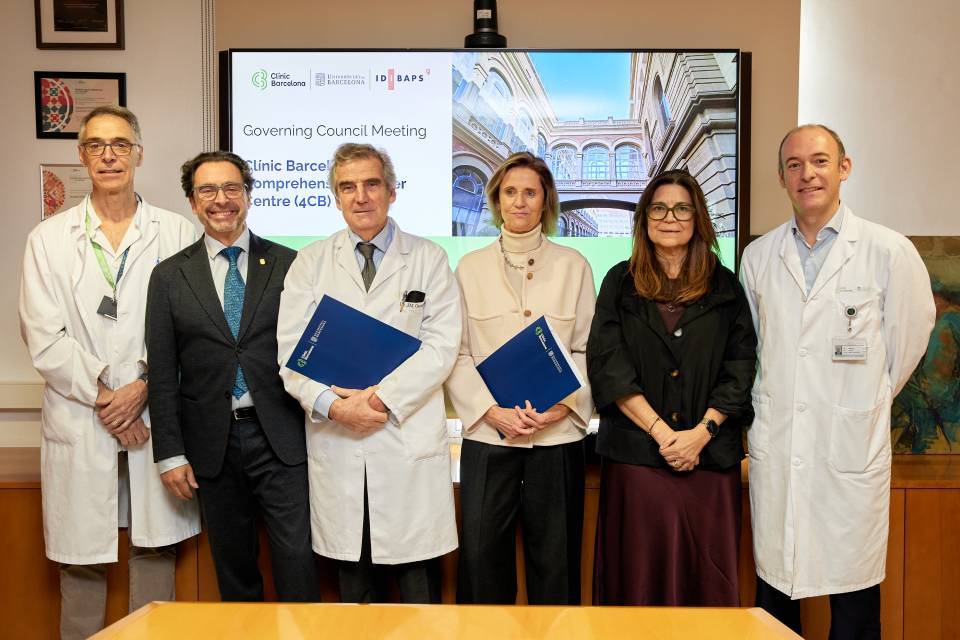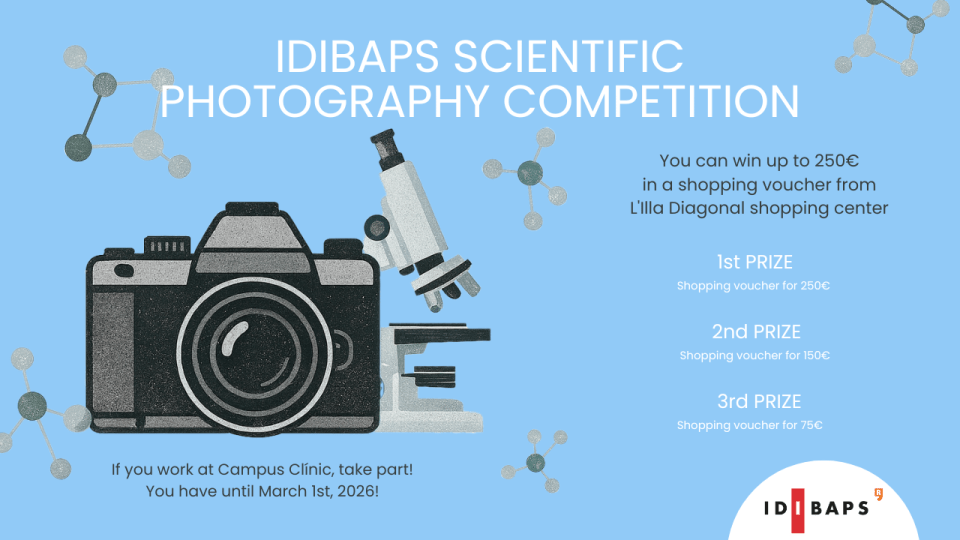The agreement was signed today by Dr Josep M. Campistol, General Director of Hospital Clínic, and Tobías Martínez, Managing Director of Cellnex Telecom.
Dr Josep M. Campistol commented that, “the agreement we signed today with Cellnex represents a significant boost to research into COVID-19. Hospital Clínic’s Immunotherapy department has an extensive record in the development of treatments based on cellular immunotherapy and, along with the experience of all the researchers and centres participating in the project, we can advance in developing new treatments to stop COVID-19.”
“As a company, we have been close to the front line of the coronavirus crisis,” commented Tobias Martinez, CEO of Cellnex, “ensuring the resilience of infrastructure and telecommunications, and with this a level of connectivity that has been shown to be key in maintaining a certain normality in social and economic activity in the context of the exceptional circumstances caused by COVID-19.”
“It is through awareness of this unprecedented situation,” continues the CEO of Cellnex, “that we have wanted to support a determined action, one that is unprecedented for us, such as allocating significant, extraordinary resources to a co-operative effort between European hospitals, coordinated by Hospital Clínic in Barcelona. The objective: contributing to research into treatment options for COVID-19 patients. Clinical research that, due to its characteristics, also has the potential for its conclusions to be extended to other diseases and pathologies with a viral origin.”
Dr Elias Campo, Director of IDIBAPS and Director of Research at Hospital Clínic, states that, “this project is part of one of the strategic research lines of IDIBAPS and the Hospital Clínic that aims to study the body's immune response to different diseases. Specifically, this project will allow us to understand how the organism responds to the SARS-CoV-2 infection, and to develop new diagnostic tools and new therapeutic elements to overcome the disease.”
The Hospital Universitario Gregorio Marañón in Madrid, the INSERM-U1183 associated with the University Hospital of Montpellier (France), the Istituto Scientifico Romagnolo per lo Studio e la Cura dei Tumori (IRST) in Meldola (Italy) and the IRCCS Ospedale San Raffaele (OSR) in Milan (Italy) will participate in this European project, which is coordinated by Dr Manel Juan, Head of Immunology at Hospital Clínic and the Immunogenetic and immunotherapy of immune and autoinflammatory response group at IDIBAPS, along with the Blood and Tissue Bank.
The importance of the population's immune status
The SARS-CoV-2 coronavirus is a new type of coronavirus that was first detected in December 2019 in the city of Wuhan, in the province of Hubei, China. The COVID-19 illness causes mild respiratory symptoms in eight out of every 10 people, but it can lead to severe respiratory disease, for example pneumonia, and even death.
One of the keys to tackling this new disease is having extensive knowledge on the population's immune status to SARS-CoV-2 and the specific role of this immunity, in other words, the type of immunity and the amount of time it is maintained. “In particular, we know that, beyond humoral immunity, in other words, the response defined by the antibodies to tackle the infection, we also have a cellular response induced by the T cells, which control all immunity,” explains Manel Juan.
T cells to stop the coronavirus
Having tools that allow the T cell response to be detected and stimulated is a key aspect in eliminating the virus, especially in those cases where there are no antibodies for the infection. But at the same time, it is essential to control the T cell response to reduce the hyper immune response that is responsible for most critical patients. Due to all of this, detection of T cells with the capacity to attack the virus must be improved and, for this, techniques that allow them to be manipulated are needed to direct their response to the infection.
Thus, thanks to the agreement between Cellnex and Hospital Clínic-IDIBAPS, a multicentre project will be developed, in which five cutting-edge European research teams in the field of immunotherapy will participate. The objective is to measure the immune system’s cellular response capacity to SARS-CoV-2 and to detect and obtain T cells that can act to control COVID-19 in its different phases.
First, different immunological profiles associated with the different clinical prognoses in patients who have had COVID-19 will be identified, which will allow to detect biomarkers able to predict how people with the infection will progress.
Furthermore, different proposals will be developed to make cellular immunotherapies available at different stages of the infection. On the one hand, natural T cells obtained from the sample of patients who have already had COVID-19 will be used to stop the infection. At the same time, specific anti-SARS-CoV-2 chimeric antigen receptors (CAR) will be developed by modifying the patient’s lymphocytes in the laboratory, so they are able to recognise and eliminate the virus. Proposals to control the hyper-response through natural regulating T cells or post-manipulation cells will also be developed.
“The collaboration of all the centres involved will make it possible to demonstrate the relevance of T cells in patients’ immune status throughout the disease and to have new therapeutic tools when faced with the lack of anti-SARS-Cov2 treatments available, being able to bring knowledge and tools to other cellular immunotherapies beyond COVID-19” concludes Dr Juan.




